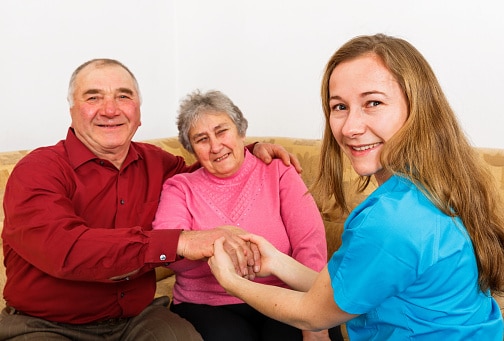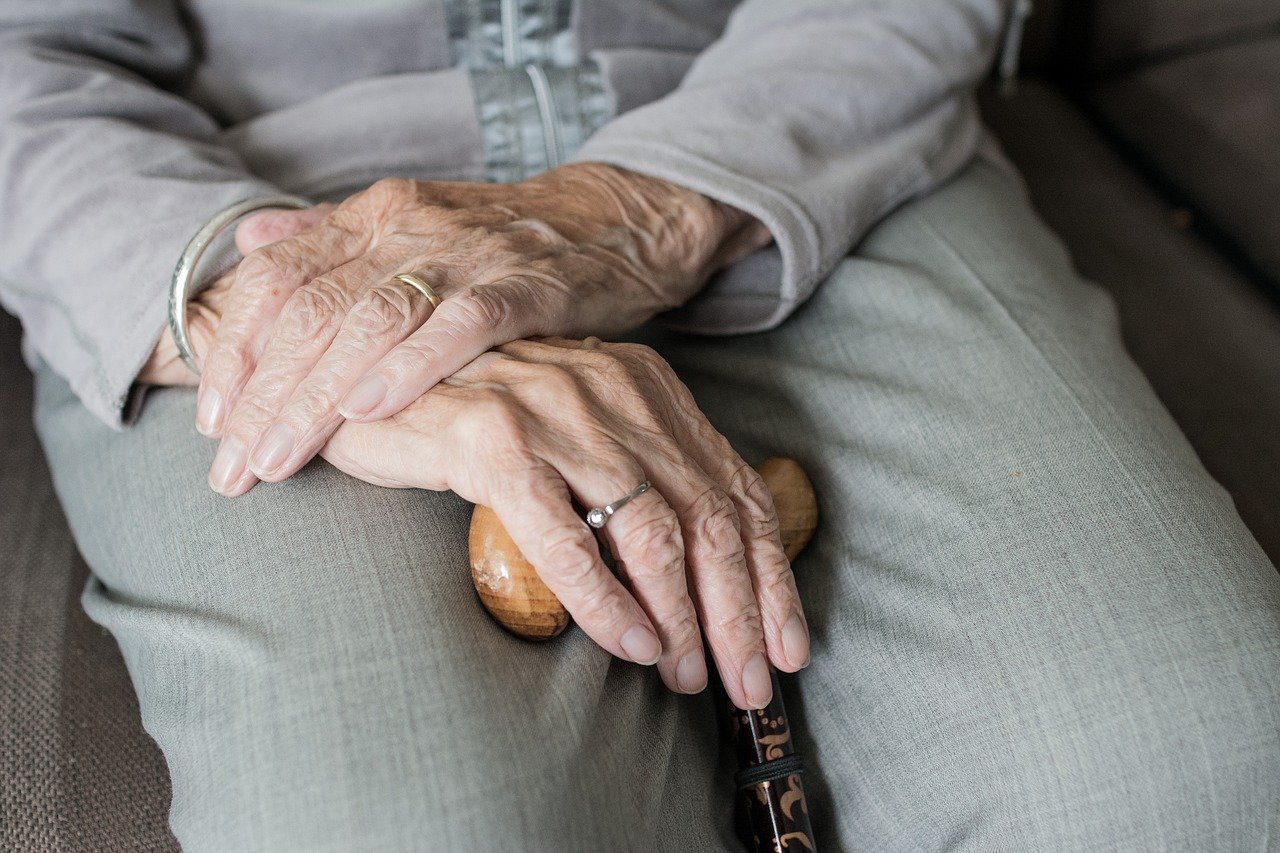
Caregiver Burnout: How to Take Care of Yourself
What to do when compassion becomes too heavy? Caregiver burnout is one of the first things to look out for.
Some would say that a loved one’s illness is harder on the family members than on the person who is aging, especially when the person suffering is a parent. The role reversal can be jarring, and you may find yourself exhausted, frustrated, and lonely.
If caring for a parent has become psychologically taxing, you may have started experiencing some symptoms of burnout.
This phenomenon, also known as caregiver fatigue, caregiver exhaustion, or caregiver burnout, can have similar symptoms to anxiety and depression. Severe caregiver burnout may make you incapable of caring for your loved one any longer.
In this article, we will define caregiver burnout and talk about how to best manage caregiver burnout.
Before we get started, it’s important to emphasize that you are not alone, even if it feels that way. Millions of loved ones experience burnout, and it does not make you weak or incapable. In fact, it’s a sign of the deep compassion you have for the people you love.
What is caregiver burnout?
Many families managing a sick or elderly loved one may enter into a state of physical and mental exhaustion. There are different types of caregiver burnout, including spouse caregiver burnout, stroke caregiver burnout, medical staff or doctor burnout, and parent(s) caregiver burnout. However, the symptoms are quite similar.
What are the causes of caregiver burnout?
You may begin to experience symptoms of caregiver burnout when you get so wrapped up in caring for a loved one that you neglect to care for yourself.
Your loved one may need an excessive amount of attention right now, and providing them with all that attention on your own can be a nearly impossible task. Here are 5 different causes of caregiver burnout:
1. Lack of necessary resources
Perhaps you have family members who are not helping you, or who are unable to. Maybe due to financial reasons, you can’t find the help that your loved one needs. If you’re a caregiver at an understaffed hospital, maybe you worry about your abilities as just one individual.
2. Lack of control around your loved one’s condition
At first, maybe you subconsciously believed that through love and care, you could make your loved one feel better. But this is not always possible, especially with degenerative diseases like Alzheimer’s or Parkinson’s. Taking care of someone tirelessly and only seeing them get worse can be demoralizing and thankless.
3. Confusion around your role as a caregiver
You were likely thrust into this position by nature of your relationship to the patient, but you may not be equipped to handle such a severe illness. Feelings of confusion can cause a rift between your role as a caregiver and your role as a daughter, son, spouse, grandchild, etc.
4. Conflict within your family or workplace
There may be disagreement within your family over what to do with an ill parent, or there may be bureaucracies at play within a care system that prevent you from taking control and doing what you see fit in the situation.
5. Not enough time
You might have obligations from work, family, and friends. On top of all that, you need to take very close care of a sick loved one. In that mix, you end up never having the time to take care of yourself. You may even feel selfish trying to do so with all the other obligations present.
What are the signs of caregiver burnout?
As you are caregiving for a patient or loved one, you should be on the lookout for caregiver burnout. You can recognize it by the following actions and feelings:
- Withdrawing from other close friends and family
- No longer finding joy in things you once enjoyed
- Feeling overwhelmed, hopeless, exhausted, and helpless
- Sudden changes in weight or your appetite
- Changes your sleep patterns
- Feeling a pessimistic outlook on life
- Getting sick more often than usual
- Experiencing impulses to hurt yourself or the person you are caring for
- Becoming more irritable
- Finding yourself saying and doing things that are out of character for you
- Feeling emotionally and physically exhausted
What are the 5 stages of burnout?
The five steps of burning out when caring for a loved one usually look like this:
1. Hopefulness and optimism
When first caring for someone, you may have very high expectations for your capabilities. You may think that you will drastically help the person you are caring for and make an enormous difference in their life.
2. Onset of Stress
You may begin to notice some common stress and anxiety symptoms. This could mean an inability to focus, avoidance in decision making, irritability, trouble sleeping, fatigue, headaches, etc.
3. Chronic Stress
A little stress is normal, especially if you are going through a familial illness. But chronic stress is a serious problem that can lead to burnout. The symptoms are similar to those of stage two, but they are more intense. For example, you may feel chronic exhaustion, experience panic attacks or nightmares, lash out in anger, or experience physical illness. This could also result in escapist activities, like substance abuse.
4. Burnout
By the time you reach burnout, the symptoms are already critical. Here are some of what you might be experiencing:
- Feeling empty inside, obsessing over problems, or noticing behavioral changes.
- Neglecting your personal needs, isolating yourself, and doubting yourself.
- Feeling a desire to drop out of society and move away from the person you are caring for.
- Experiencing physical symptoms like chronic headaches or chronic stomach problems.
5. Habitual Burnout
If you do not get the resources you need, burnout symptoms could become embedded in your life, and you could experience a serious physical or emotional problem. The signs of chronic burnout are burnout syndrome, chronic sadness, depression, and chronic physical issues. This could also lead to trauma.
How do I manage my caregiver burnout?
We are commonly asked how to fix caregiver burnout, but instead of using the word “fix”, try to think of how to “treat” caregiver burnout. Your environment is challenging right now, but you are not the problem. Your symptoms are a sign that you are lucid and aware of your situation and environment.
Caregiver burnout can be treated by working on your mental health, or by reaching out and taking advantage of resources that are accessible to you.
Here are a few things that might help you ease the mental burden:
Accept the reality of the situation
It might be tempting to search for someone to blame or look for clear answers where there are none. Your energy is better spent on things you can control, rather than dwelling on the unfairness of the situation.
Instead of wishing someone else would help more, or wishing you had more time, focus on the things within your control. Consider your response to problems rather than the problems themselves.
Meaning is not inherent; it is created, which brings us to the next step:
Find your “why”
If you have chosen to provide care, you did so for a reason. Instead of feeling forced into this circumstance, take power back by taking ownership of your own decision to provide care. Remember that your current actions are setting an example for your children or friends. Or maybe you are repaying a parent for the years they cared for you. Embrace these strong values that define you, and call on them when you are feeling helpless.
Don’t let caregiving take over your life
The most crucial step, even when it seems impossible, is to invest in yourself. Prioritize the things that are important to you. Imagine what your loved one might say if they were more lucid. It may make them feel better to see that you are happy and healthy.
Ask for help
Asking for help is a sign of profound strength. Speak to your friends and family frankly and honestly about how you feel. Maybe they will even rise to the occasion.
In-home services from volunteers are available if you cannot afford paid help. Enlist a friend or family member nearby to bring meals or watch your loved one while you take a break.
Organize and delegate to your family members. Even people who don’t live nearby can help. One person can handle medical responsibilities; another person can handle the bills, run errands, buy groceries, and cook.
There are probably caregiver support groups in your area, and if not, you can find some online. There are also mental health sites that offer free chats or other affordable resources.
Last Words
You cannot pour from an empty cup.
Taking care of yourself is not selfish. Sometimes it is the most selfless thing you can do. Caregiver burnout is treatable.
Reach out to neighbors, friends, and loved ones. You may be surprised by how many people are present to help you if you are honest about needing assistance. Reach out to a religious group, an online support group, or friends and loved ones, and relinquish some control to them so you can rest and have some alone time. You and your loved one will both be better for it.
Resources:
- Coping with Caregiver Stress and Alzheimer’s, The American Institute of Stress, www.stress.org
Related Articles

Elder Law Attorneys: A Comprehensive Guide
If you are someone who is taking care of a senior or has an elderly loved one, you should consider working with an elder law attorney. Though you may not expect it, individuals begin to face new and more complex legal concerns as they get older. Actions that may have seemed trivial when they were […]

When Is It Time for Assisted Living?
Wondering if it is time for assisted living for your loved one is a common question for caregivers. As a caregiver, you might have been considering the question for months or possibly even years. Your loved one might have declined to continue the discussion as the thought of moving out of their family home and […]

All About Adult Day Care: Community and Costs
Adult day care is a fairly new concept for caregivers. The basic idea is to provide a secure place where seniors can enjoy social activities during the day and be provided nursing care as needed. It’s a hybrid model of eldercare that prioritizes community. At the same time, seniors get help with common custodial tasks […]

Respite Care: An Overview
Caregiving can be overwhelming at times. That’s why taking a break is essential for recharging your battery. Respite care, also called short break care, is a way for caregivers to get temporary care for their loved ones so they can take some time to rest. Getting this “me time” of respite care can renew the […]

An Overview of Senior Rehabilitation Centers
Recovering from injury or illness in your golden years may take time and support. That’s where senior rehabilitation centers become essential. If you need a temporary stay to recover from injury or illness, senior rehabilitation centers can be the solution to get expert care and daily support. In this article, we’ll give you an overview […]

A Caregiver’s Guide to ADLs and IADLs
This article has been medically reviewed by Dr. Martin Duggan in 2021. This content is not intended to be a substitute for professional medical advice, diagnosis, or treatment. Always seek the advice of your physician or another qualified health provider with any questions you may have regarding a medical condition. As a family caregiver, your […]